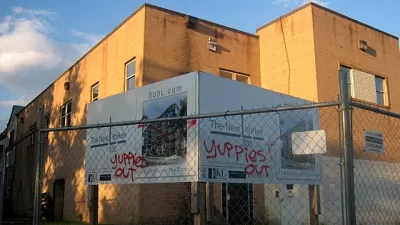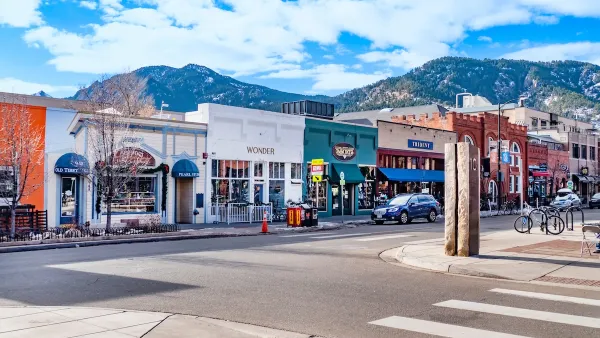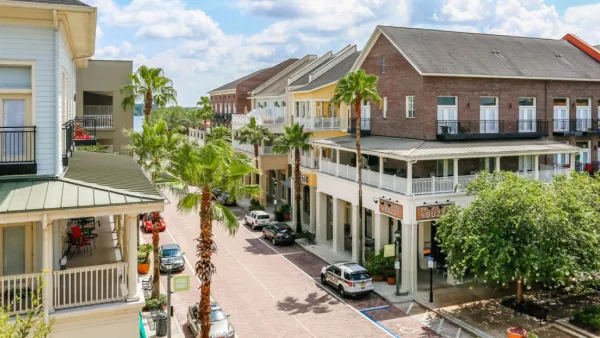Trying to thread the needle between those who celebrate the demise of the exurb and those who bemoan smart growth policies, Edward Glaeser argues that we can, and should, have it all when it comes to housing choice in America.
Rather than picking sides in the sprawl versus density debate, Glaeser argues for the importance of all of the above:
"Economic theory typically embraces choice, whether in supermarkets or in cities. It is a great thing that Americans can opt to live in dense cities or sprawling suburbs. As long as people pay the social costs of their actions, and are not subsidized by policies that artificially favor one living style over another, then it is splendid that we have plenty of options, some with sunshine and inexpensive mass-produced housing and others with high wages and costly apartments."
The crucial caveat in the above statement should not go unnoticed, as it serves as the front line in the debate between the supporters of sprawl and density. Rather than getting caught up in current skirmishes, however, Glaeser frames the debate in larger historical terms:
"The tides of history may occasionally make one form of living appear temporarily triumphant -- as suburbia did, thanks to cheap cars and abundant highways, in the 1960s and 1970s -- but soon enough other forces reassert themselves. After 1980, globalization and new technologies increased the value of ideas and innovation, which in turn led to a rebirth of those older, denser cities that were heavy with human capital."
In the end, Glaeser offers suggestions to ameliorate the worst side effects of each development type:
"Cities such as New York, Boston and San Francisco, where prices have stayed reasonably high, despite the crash, should do more to promote affordable housing, especially by eliminating the barriers to new construction."
"Cities such as Dallas and Houston are doing well with their low-cost pro-business model, but history has been less kind to less-educated places. They should be investing more in education and in urban amenities that will attract the more skilled."
"The biggest challenges are in the places like Merced and Detroit that have too much housing relative to the level of demand. These places have too little education, and lack the industrial strength that holds up Houston. These areas should at least focus on educating their children and creating a more business-friendly environment."
FULL STORY: You Hate Taxes, but You’re Not Moving to Nashville

Maui's Vacation Rental Debate Turns Ugly
Verbal attacks, misinformation campaigns and fistfights plague a high-stakes debate to convert thousands of vacation rentals into long-term housing.

Planetizen Federal Action Tracker
A weekly monitor of how Trump’s orders and actions are impacting planners and planning in America.

In Urban Planning, AI Prompting Could be the New Design Thinking
Creativity has long been key to great urban design. What if we see AI as our new creative partner?

King County Supportive Housing Program Offers Hope for Unhoused Residents
The county is taking a ‘Housing First’ approach that prioritizes getting people into housing, then offering wraparound supportive services.

Researchers Use AI to Get Clearer Picture of US Housing
Analysts are using artificial intelligence to supercharge their research by allowing them to comb through data faster. Though these AI tools can be error prone, they save time and housing researchers are optimistic about the future.

Making Shared Micromobility More Inclusive
Cities and shared mobility system operators can do more to include people with disabilities in planning and operations, per a new report.
Urban Design for Planners 1: Software Tools
This six-course series explores essential urban design concepts using open source software and equips planners with the tools they need to participate fully in the urban design process.
Planning for Universal Design
Learn the tools for implementing Universal Design in planning regulations.
planning NEXT
Appalachian Highlands Housing Partners
Mpact (founded as Rail~Volution)
City of Camden Redevelopment Agency
City of Astoria
City of Portland
City of Laramie





























